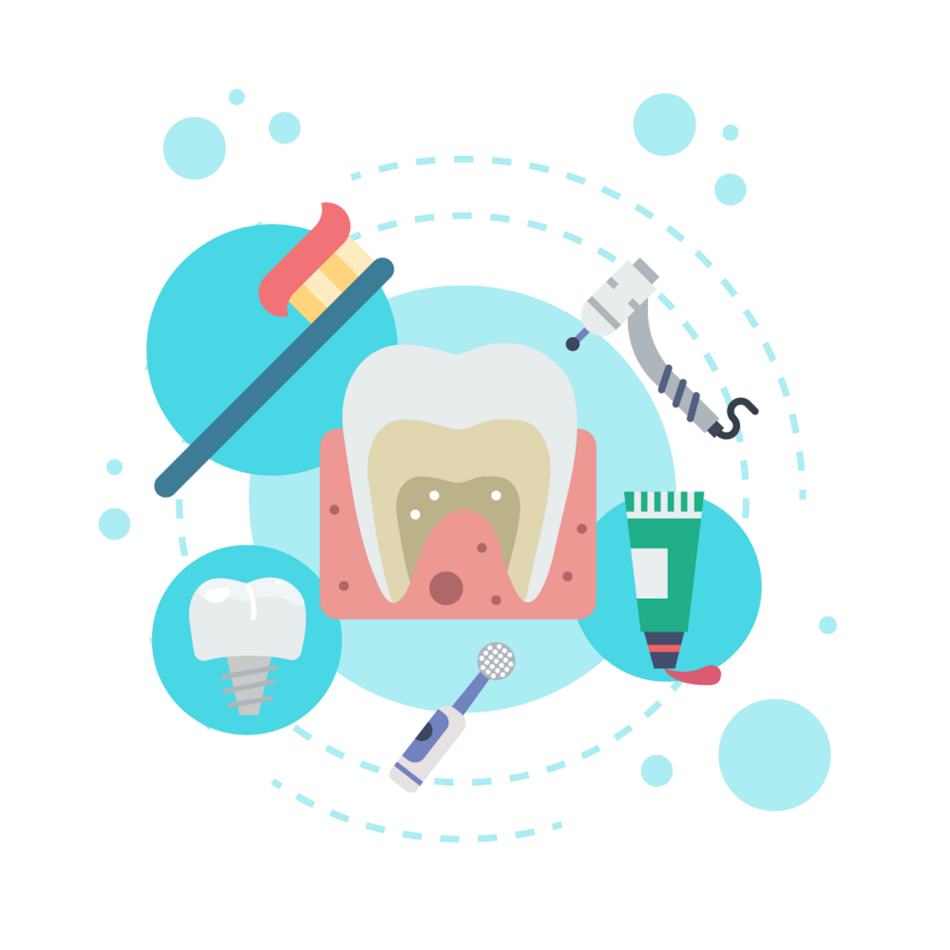Dental problems affect millions of Americans every year. Tooth decay is one of the most common, causing 7 percent of Americans to lose at least one tooth by the time they reach 17, while the average 50-year-old is missing around 12 teeth.
And it’s not just tooth decay you need to worry about. Gingivitis, gum disease, and halitosis can all have a negative impact on your quality of life.
So, how can you take better care of your teeth and prevent these issues?
Fighting tooth decay
Tooth decay is caused by cavities. Cavities are caused by plaque. And that means you have to remove plaque from your teeth effectively to keep cavities at bay.
Plaque is a sticky substance that forms on teeth without the proper care, and when it combines with starches and sugars from foods, produces acids strong enough to damage your tooth enamel.
If you don’t remove plaque, it hardens and becomes tartar, which requires professional attention. Fortunately, you can minimize your risk of plaque build-ups and eventual tooth decay by following a strict dental care routine.
Brush your teeth for around two minutes twice a day, and floss at least once. Make sure you visit your local dentist for regular check-ups, too.
Fighting gingivitis and gum disease
Gingivitis is a mild form of gum disease, but must be treated early. Otherwise, you may be at risk of tooth loss and require emergency dental care or dental implants down the line. If you are already past treatment point, you can receive dental crowns in Brooklyn and receive the best care.
Gingivitis causes swelling, redness, and irritation at the base of your teeth. You may notice your gums feel tender, start to recede, and bleed when brushing or flossing.
As with tooth decay, gingivitis is caused by a build-up of plaque, though smoking, diabetes, and dry mouth can all contribute too.
And, as with tooth decay, prevention lies in brushing & flossing regularly and avoiding high-sugar foods. Use mouthwash from a reputable brand (e.g. Colgate) to help flush more bacteria out of your mouth after brushing.
If you notice gingivitis symptoms, don’t hesitate to see a dentist as soon as you can.
Fighting halitosis
Halitosis (bad breath) can be caused by smoking, poor dental hygiene, certain medications known to reduce saliva, and food lodged between the teeth for long periods. However, halitosis may also be a result of certain metabolic diseases.
In most cases, halitosis related to poor oral hygiene is easy to fix: just brush and floss daily to cultivate a more pleasant mouth odor. Mouthwash can also help, though it may be too weak to cover the smell of halitosis, so focus on addressing the problem rather than trying to cover it. If your bad breath persists, see a doctor to rule out any other underlying causes.
The three dental problems discussed above can be difficult to live with, but the best dentists offer solutions for any of these (and others). The best way to take care of your teeth are annual visits to the dentist and overall goo oral health habits. If people don’t treat their teeth with respect, they might lose them or suffer from decay.

